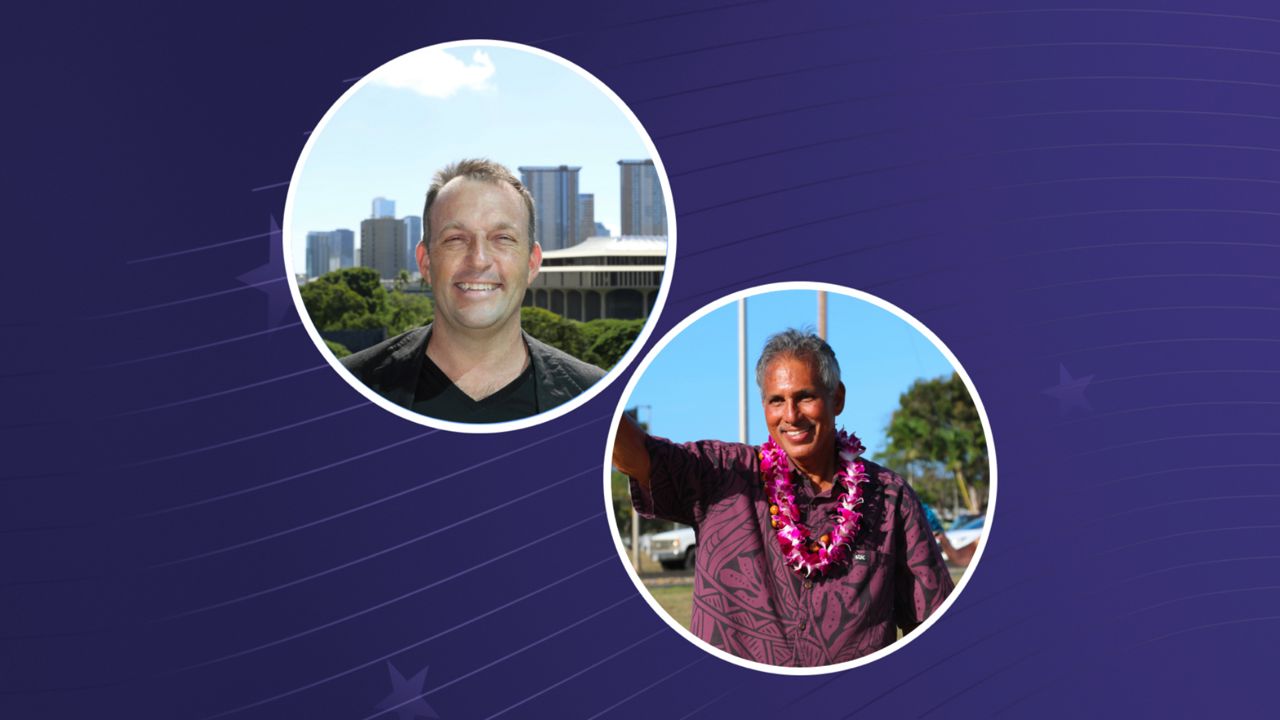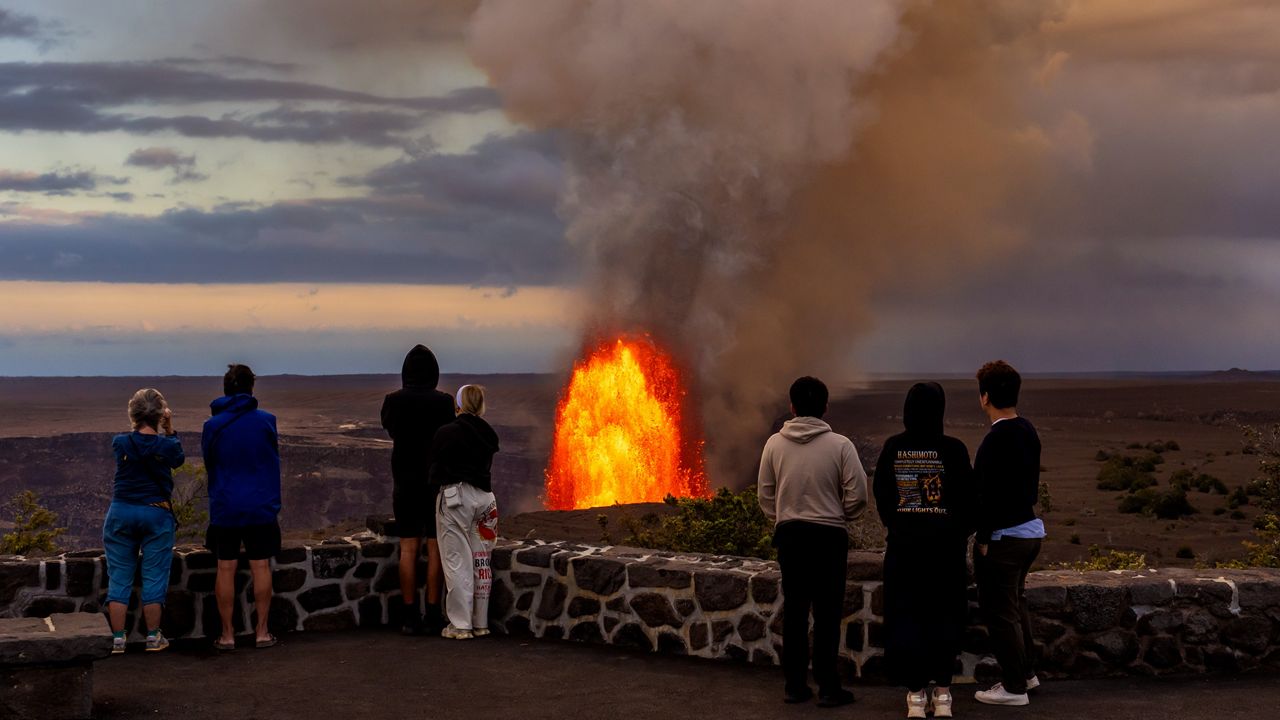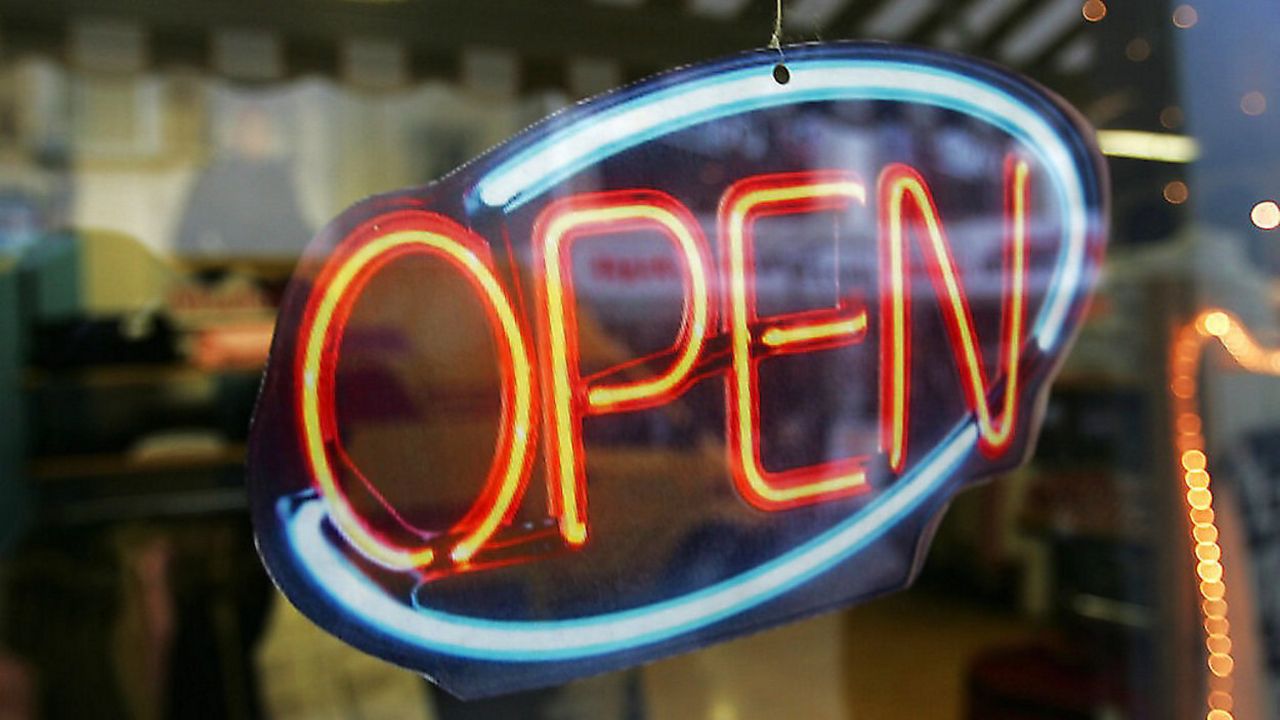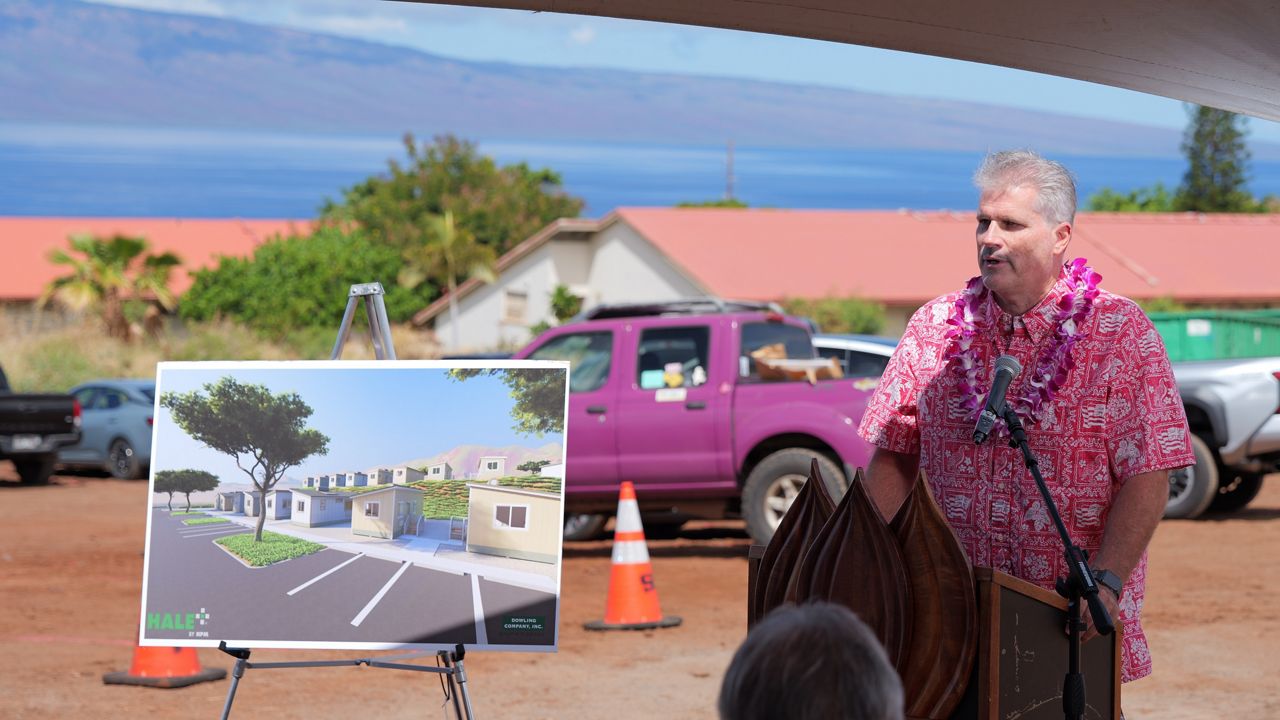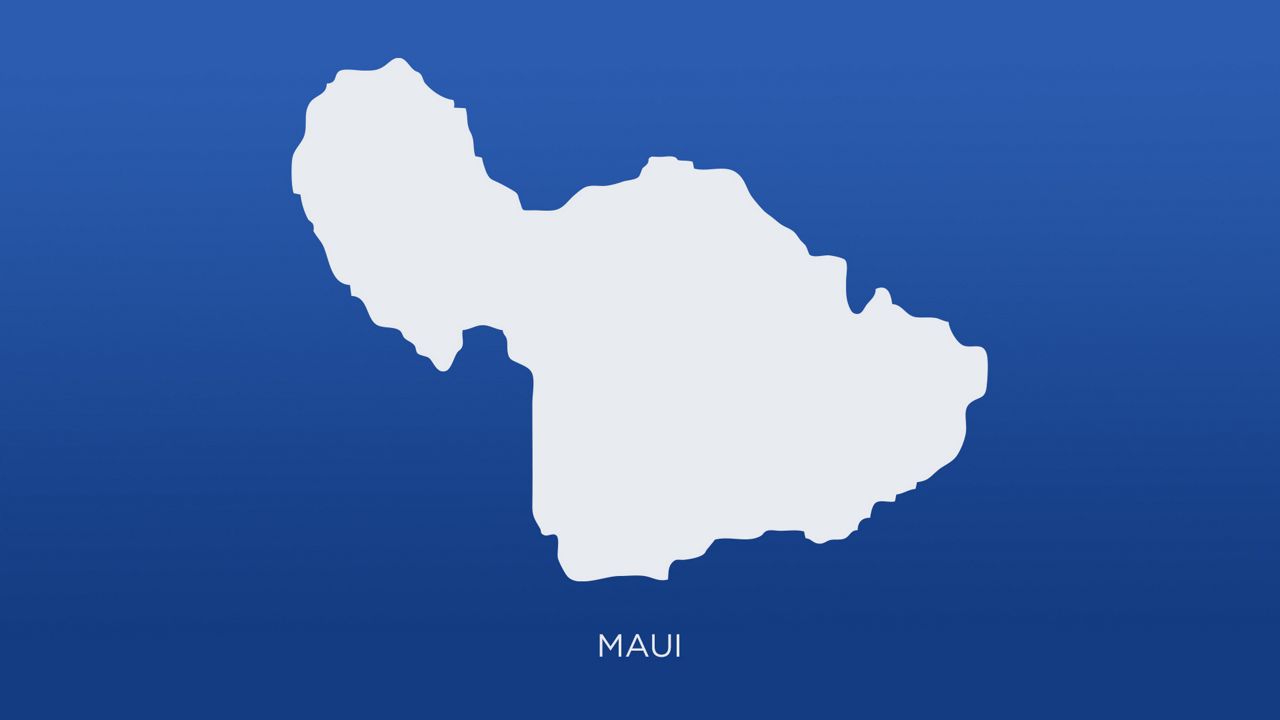HONOLULU — They talked about plans and policy. They instigated and insinuated. They flickered and flared and fired off social-media-inspired salvos to breach each other's defenses.
And by the time the first debate between Duke Aiona and Josh Green was over, both candidates let it be known that the battle for governor of the Hawaii would be a clash of wily political veterans with starkly different takes on abortion, marijuana legalization and just how well the state responded to the COVID-19 pandemic.
Wednesday’s debate was sponsored by AARP and televised live on KHON.
Republican nominee Aiona, an underdog in both polling and campaign finances, was the more aggressive of the two candidates, repeatedly linking current consumer woes with a supposedly botched response to the pandemic by the Gov. David Ige-Lt. Gov. Green administration. Aiona also tried to undermine Green’s character by reading from a critical Facebook post by former Gov. Ben Cayetano and citing controversial quotes attributed to Green from an address the lieutenant governor made while receiving an honorary doctorate from his collegiate alma mater.
Green mostly attempted to distinguish himself as the more prepared candidate by readily responding to questions with specific policy proposals, statistics and insights gleaned as the more recent participant in high-level decision-making. Yet, he too was willing to attack his opponent directly, pressuring Aiona to explain his controversial stands on abortion issues, his affiliation with the ultra-conservative Hawaii Family Advocates and his past support of former Pres. Donald Trump.
The debate, moderated by KHON reporter Gina Mangieri, started with both candidates staking familiar ground on the economy.
Aiona harkened to former Gov. Linda Lingle, under whom he served as lieutenant governor, and her administration’s “Hawaii’s open for business” slogan.
“I think the best thing we can do is just kind of get out of the way,” Aiona said. “Let businesses know that they can be businesses. Try to see how much we can do with regulations and taxes.”
Green said his administration would be more proactive by eliminating taxes on food and medication and incentivizing new industries to diversify the economy.
The two also stuck to predictable party lines explaining how they would make up for revenue lost by eliminating taxes on food and medicine. Aiona said he believed the state has adequate resources and recommended an audit of those resources to determine how existing funds can be best allocated. Green reiterated his proposal for a climate-impact fee on adult visitors that would go into a special fund to cover shortfalls in dealing with the climate crisis.
On the topic of legalizing marijuana, Green said he would sign such a bill if it’s sent to him by the Legislature.
“I think that people already have moved past that culturally as a concern,” Green said. “But here’s what I would do. First of all, if marijuana is legalized, it should be very carefully monitored, and only done like cigarettes, or I’ve been very careful to regulate tobacco over the years. We should take the $30 to $40 million of taxes we would get from that and invest in the in the development and recreation of our mental healthcare system for the good of all.”
Aiona, who founded the drug court in Hawaii, said he was surprised at Green’s response and expressed his own concerns about recreational marijuana use, particularly for children and young adults.
When Green clarified that he did not support legalizing marijuana for people under 21 but thought it was useful for people with PTSD, chronic pain and other conditions who might otherwise self-medicate with opioids or other addictive drugs, Aiona said he did not believe in “substituting drugs.”
“We’re talking about legalizing marijuana, which is just another drug that’s going to go out there and cause more havoc within our community,” he said.
The debate turned heated when the candidates were asked about their positions on abortion.
Aiona, answering first, dismissed the topic as “an issue that my opponent keeps harping on … to divide and create emotional scars for the women of Hawaii.”
According to Aiona, “the Supreme Court ruling (striking down Roe v. Wade) did nothing to change our laws in regards to abortion,” and that local abortion laws could only be changed by legislative action.
Asked if he would sign a bill that liberalizes abortion law, Aiona said he would not speculate without knowing what the bill specifically called for but said he was concerned about efforts in other states to liberalize abortion laws “to where now we can have abortion after birth,” drawing a rebuke from Green.
Green criticized Aiona for using the word “emotional” in reference to women’s response to the issue of abortion (leading to a brief back-and-forth about the intended and inferred meanings of the word), ridiculed his mention of abortion after birth, and challenged him over his past comments opposing abortion even in cases involving rape and incest.
Later, the candidates jabbed and weaved through a segment in which they were allowed to ask each other questions. Both took the opportunity to flick some oppo-lite mud, Aiona with his Cayetano Facebook post and reference to an offhand comment Green made at Swarthmore College about his anxiety in speaking to a “brilliant” audience (which Aiona couched as an insult to locals) and Green bringing up Aiona’s work with Hawaii Family Advocates and his support of Trump.
The enmity peaked near the end of the debate when Aiona, picking up on Green’s answer to a question about what he would do to bring people together, brought up Green’s supposedly distant relationship with Ige.
“I don’t know how my opponent can talk about bringing people together when he himself and Gov. Ige have never gotten together,” Aiona said. “They’ve never gotten together as far as I can see, in regards to the COVID pandemic that we had. I’ve never even I’ve never seen them attend a joint press conference. I’ve never seen Gov. Ige once say that any of the policies that he adopted and implemented were a result of the recommendations given by his lieutenant governor.”
Green rebutted the characterization, citing his numerous appearances with Ige during the pandemic. The two later verbally skirmished outside their designated time limits after Aiona brought up another remark Green made at Swarthmore in which, according to Aiona, Green called the position of the lieutenant governor “useless.”
Green’s actual comment was that he ran for lieutenant governor, “a position which most people feel is utterly worthless,” because it would allow him to continue working as a physician. He followed that by explaining how being lieutenant governor actually put him in a position to make a difference in the state’s pandemic response.
Michael Tsai covers local and state politics for Spectrum News Hawaii.





